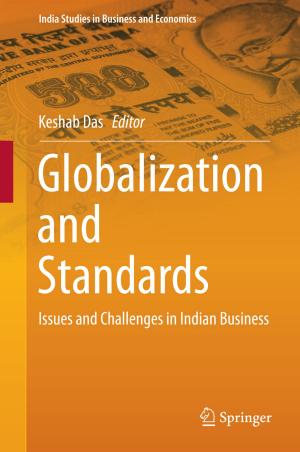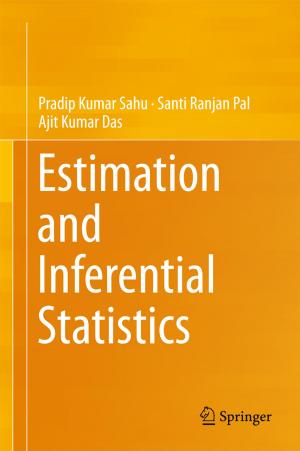Decision Processes by Using Bivariate Normal Quantile Pairs
Business & Finance, Economics, Statistics, Nonfiction, Science & Nature, Mathematics| Author: | N. C. Das | ISBN: | 9788132223641 |
| Publisher: | Springer India | Publication: | October 7, 2015 |
| Imprint: | Springer | Language: | English |
| Author: | N. C. Das |
| ISBN: | 9788132223641 |
| Publisher: | Springer India |
| Publication: | October 7, 2015 |
| Imprint: | Springer |
| Language: | English |
This book discusses equi-quantile values and their use in generating decision alternatives under the twofold complexities of uncertainty and dependence, offering scope for surrogating between two alternative portfolios when they are correlated. The book begins with a discussion on components of rationality and learning models as indispensable concepts in decision-making processes. It identifies three-fold complexities in such processes: uncertainty, dependence and dynamism.
The book is a novel attempt to seek tangible solutions for such decision problems. To do so, four hundred tables of bi-quantile pairs are presented for carefully chosen grids. In fact, it is a two-variable generalization of the inverse normal integral table, which is used in obtaining bivariate normal quantile pairs for the given values of probability and correlation. When making decisions, only two of them have to be taken at a time. These tables are essential tools for decision-making under risk and dependence, and offer scope for delving up to a single step of dynamism. The book subsequently addresses averments dealing with applications and advantages.
The content is useful to empirical scientists and risk-oriented decision makers who are often required to make choices on the basis of pairs of variables. The book also helps simulators seeking valid confidence intervals for their estimates, and particle physicists looking for condensed confidence intervals for Higgs–Boson utilizing the Bose–Einstein correlation given the magnitude of such correlations. Entrepreneurs and investors as well as students of management, statistics, economics and econometrics, psychology, psychometrics and psychographics, social sciences, geographic information system, geology, agricultural and veterinary sciences, medical sciences and diagnostics, and remote sensing will also find the book very useful.
This book discusses equi-quantile values and their use in generating decision alternatives under the twofold complexities of uncertainty and dependence, offering scope for surrogating between two alternative portfolios when they are correlated. The book begins with a discussion on components of rationality and learning models as indispensable concepts in decision-making processes. It identifies three-fold complexities in such processes: uncertainty, dependence and dynamism.
The book is a novel attempt to seek tangible solutions for such decision problems. To do so, four hundred tables of bi-quantile pairs are presented for carefully chosen grids. In fact, it is a two-variable generalization of the inverse normal integral table, which is used in obtaining bivariate normal quantile pairs for the given values of probability and correlation. When making decisions, only two of them have to be taken at a time. These tables are essential tools for decision-making under risk and dependence, and offer scope for delving up to a single step of dynamism. The book subsequently addresses averments dealing with applications and advantages.
The content is useful to empirical scientists and risk-oriented decision makers who are often required to make choices on the basis of pairs of variables. The book also helps simulators seeking valid confidence intervals for their estimates, and particle physicists looking for condensed confidence intervals for Higgs–Boson utilizing the Bose–Einstein correlation given the magnitude of such correlations. Entrepreneurs and investors as well as students of management, statistics, economics and econometrics, psychology, psychometrics and psychographics, social sciences, geographic information system, geology, agricultural and veterinary sciences, medical sciences and diagnostics, and remote sensing will also find the book very useful.















